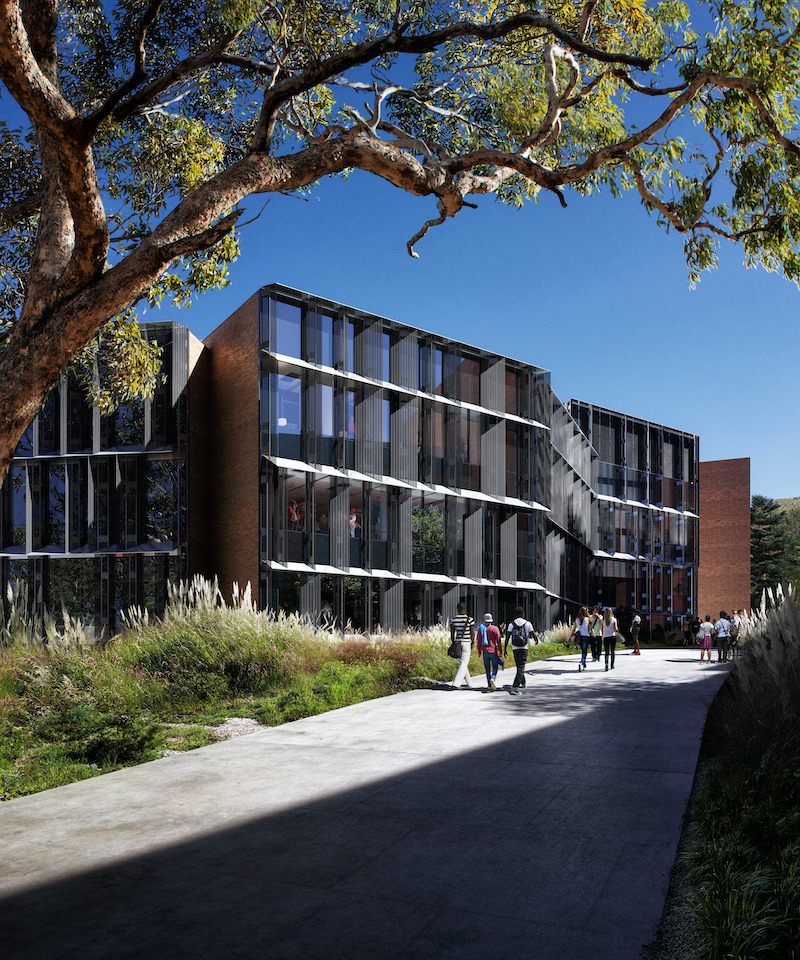Cal Poly San Luis Obispo’s newest addition to its campus, The William and Linda Frost Center for Research and Innovation, is currently under construction.
The four-story, 103,800-sf Center is dedicated to undergraduate students who engage in faculty-mentored research each year and work side-by-side with professors. The Frost Center will bring three colleges together under one roof: the College of Liberal Arts, the College of Science and Mathematics, and the College of Agriculture, Food, and Environmental Sciences. It is designed to support the educational priorities of a growing student and faculty population, promote interdisciplinary communities, and provide academic space.
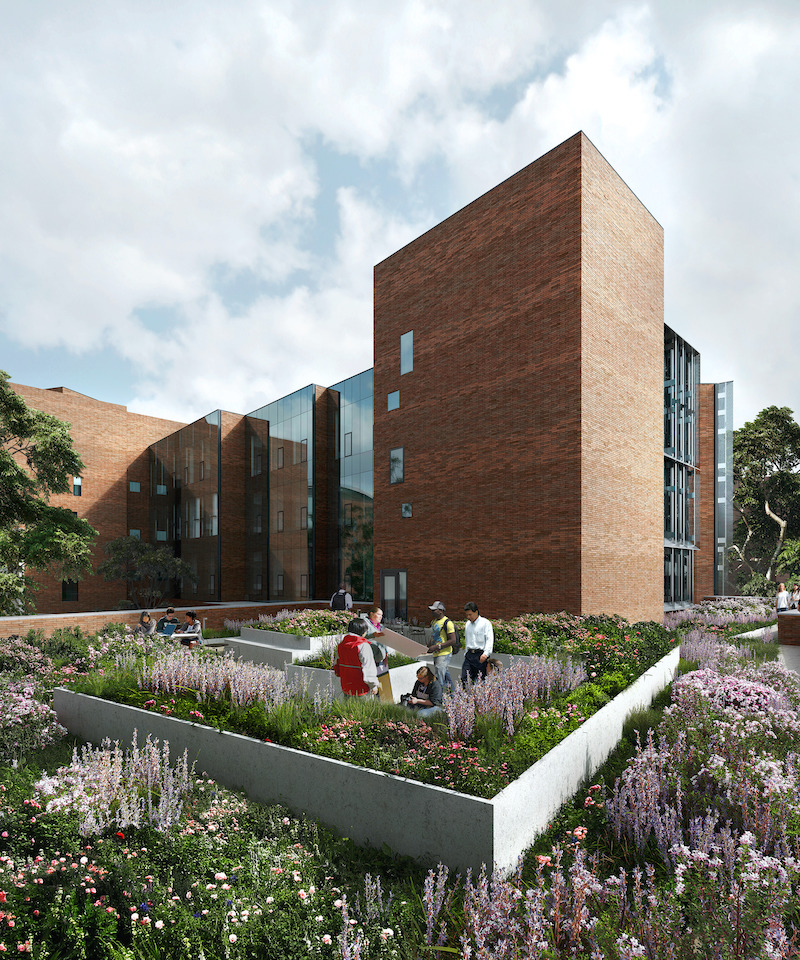
Included within the building are 19 flexible laboratory and teaching spaces, large general-purpose classrooms, collaboration areas, faculty/staff offices, a recording studio, editing bays, a high-end computer lab, and a teaching kitchen. The teaching kitchen is showcased on the first floor and is highly visible from the atrium.
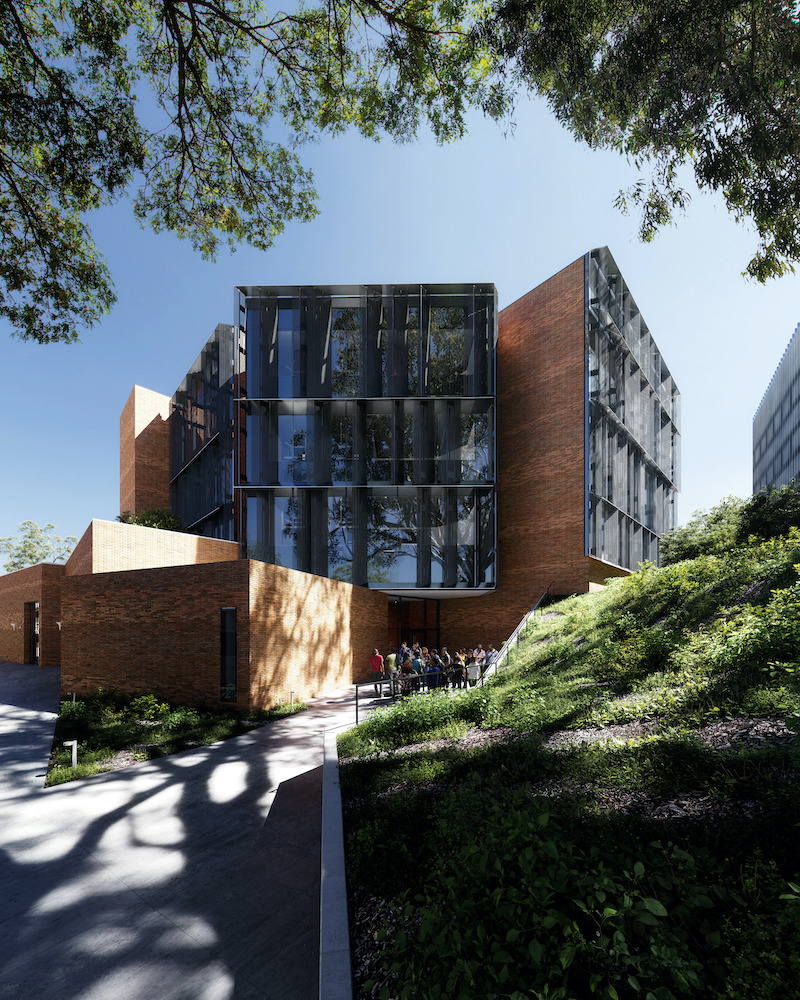
The modularly planned laboratories provide flexibility for any future changes and can be combined to produce large, open laboratories or subdivided to produce small instrument or special-use laboratories. A “big room” for the College of Liberal Arts will give students a space where they can create, perform, test, record, and display their work for passersby along the adjacent hallways and exterior pathways.
Passive design strategies and natural ventilation will create a healthy building for occupants. 100% outside air from air handling units and operable windows in offices allow the building to avoid the recirculation of air that might provide an avenue for airborne exposure to viruses such as COVID-19.
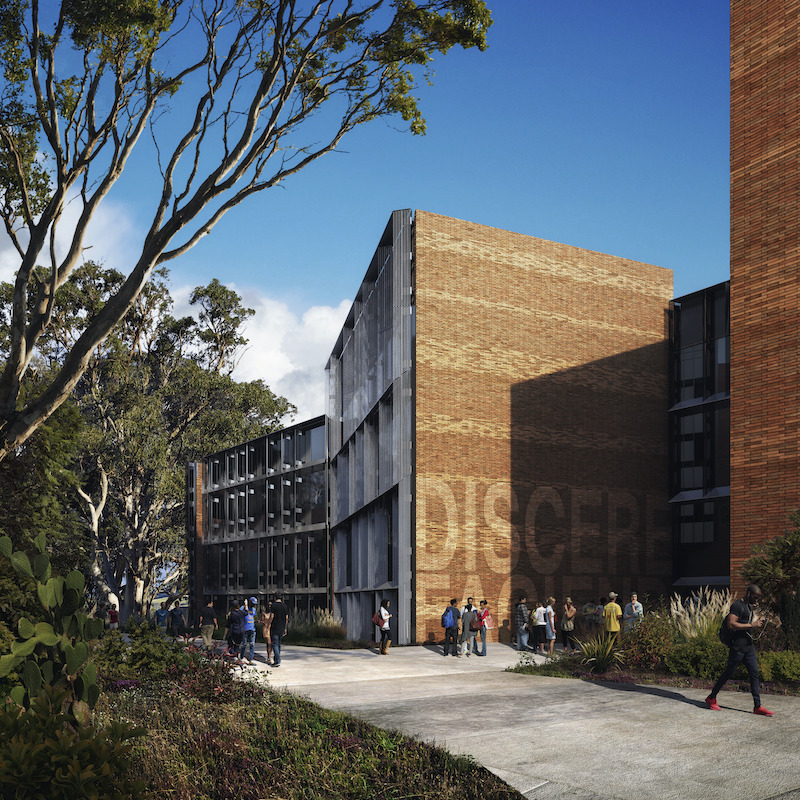
The project is designed to achieve LEED Gold and includes sustainable features such as passive heating and cooling strategies, will consume 30% less potable water, and will have the capacity to accommodate future rooftop solar panels.
See Also: Apartments and condos occupy what was once a five-story car dealership
The William and Linda Frost Center for Research and Innovation is slated for completion in late 2021.
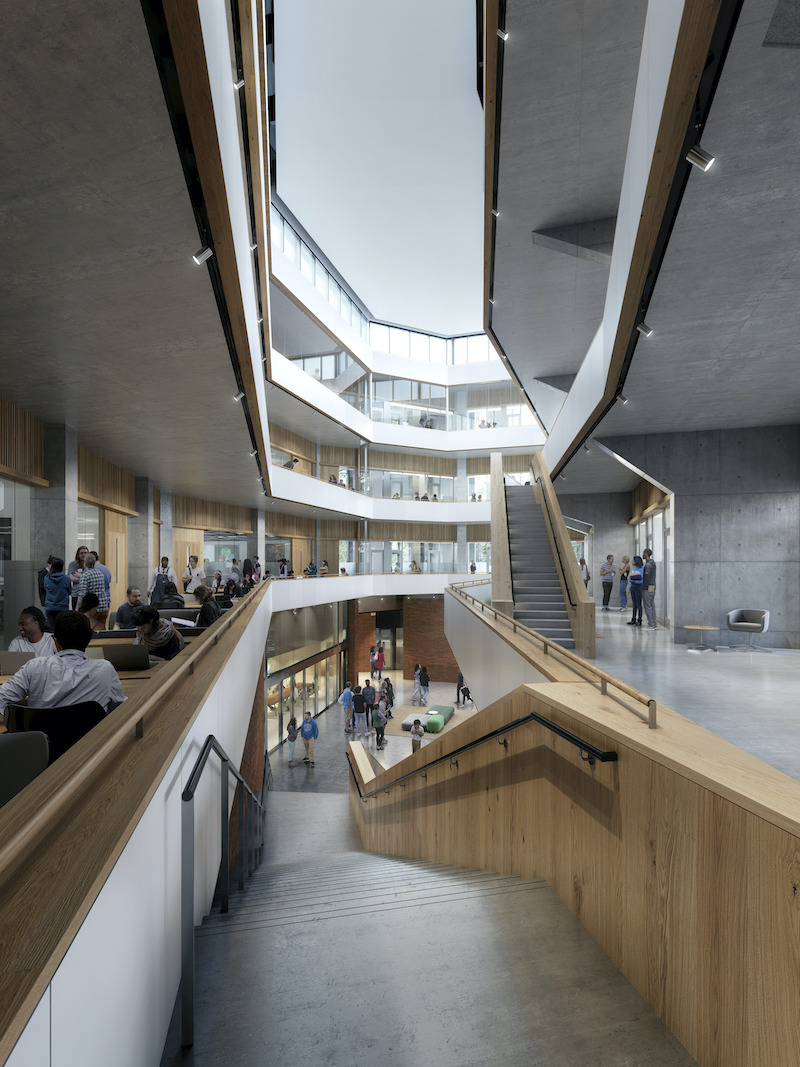
Related Stories
| Aug 11, 2010
Living and Learning Center, Massachusetts College of Pharmacy & Health Sciences
From its humble beginnings as a tiny pharmaceutical college founded by 14 Boston pharmacists, the Massachusetts College of Pharmacy & Health Sciences has grown to become the largest school of its kind in the U.S. For more than 175 years, MCPHS operated solely in Boston, on a quaint, 2,500-student campus in the heart of the city's famed Longwood Medical and Academic Area.
| Aug 11, 2010
Giants 300 University Report
University construction spending is 13% higher than a year ago—mostly for residence halls and infrastructure on public campuses—and is expected to slip less than 5% over the next two years. However, the value of starts dropped about 10% in recent months and will not return to the 2007–08 peak for about two years.
| Aug 11, 2010
Team Tames Impossible Site
Rensselaer Polytechnic Institute, the nation's oldest technology university, has long prided itself on its state-of-the-art design and engineering curriculum. Several years ago, to call attention to its equally estimable media and performing arts programs, RPI commissioned British architect Sir Nicholas Grimshaw to design the Curtis R.
| Aug 11, 2010
Setting the Green Standard For Community Colleges
“Ohlone College Newark Campus Is the Greenest College in the World!” That bold statement was the official tagline of the festivities surrounding the August 2008 grand opening of Ohlone College's LEED Platinum Newark (Calif.) Center for Health Sciences and Technology. The 130,000-sf, $58 million community college facility stacks up against some of the greenest college buildings in th...
| Aug 11, 2010
University of Arizona College of Medicine
The hope was that a complete restoration and modernization would bring life back to three neoclassic beauties that formerly served as Phoenix Union High School—but time had not treated them kindly. Built in 1911, one year before Arizona became the country's 48th state, the historic high school buildings endured nearly a century of wear and tear and suffered major water damage and years of...
| Aug 11, 2010
Cronkite Communication School Speaks to Phoenix Redevelopment
The city of Phoenix has sprawling suburbs, but its outward expansion caused the downtown core to stagnate—a problem not uncommon to other major metropolitan areas. Reviving the city became a hotbed issue for Mayor Phil Gordon, who envisioned a vibrant downtown that offered opportunities for living, working, learning, and playing.


